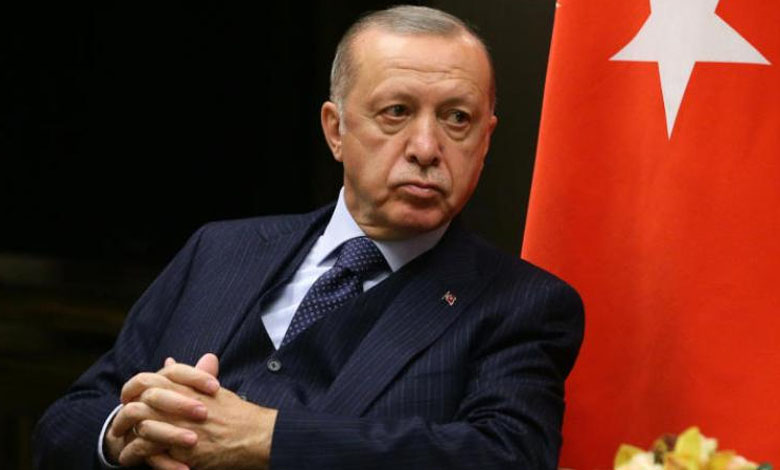Erdogan cancels his scheduled activities due to illness

After an interview he gave on live TV on Tuesday evening was suddenly interrupted due to a health problem, Turkish President Recep Tayyip Erdogan announced that he will cancel his election activities scheduled on Wednesday, after suffering from stomach flu, less than a month before the presidential elections in Turkey.
“Today (Wednesday), I will rest at home on the advice of our doctors,” Erdogan, 69, wrote on his official Twitter account.
On Tuesday, Turkish presidential spokesman İbrahim Kalın said President Recep Tayyip Erdogan’s health was fine, with Calin writing on his official Twitter page: “Our president, thank God, is in good health.”
After a long pause in livestreaming, Erdoğan has come back on the air, and said, “I wish you health. Yesterday and today there was a lot of work in the campaign…, so I got gastritis. I even thought about canceling the show, but we promised and came…I apologize to you and to our viewers.”
The long pause caused a social media sensation about what happened to Erdogan.
Erdogan is looking to win a new term at the helm of the country after two decades in office; His record in power, however, is assessed as “negative” and could affect his participation in the May 14 presidential race in front of his main rival, the united opposition candidate Kemal Kılıçdaroğlu.
His popularity has plummeted since 2020, and in 2018 he won 52% of the votes in the first round of the presidential election. For the time being, however, the number of votes he can get in the first round does not exceed 40% or 42%.
In the 2,000 years, Erdoğan has adopted a liberal policy of stability, taking advantage of an international position in his favor, and after trying to join the EU in the 15 years, Turkey has benefited greatly from foreign investment.
Per capita income went from $3,000 in 2002 to $12,000 in 2012, the highest level, and has since declined, and is now in the $9,000 level of 2007-2008. “The economic crisis is largely a product of his policy since 2018, with the Turkish lira falling dramatically and losing more than 200 per cent to the euro in four years.”












